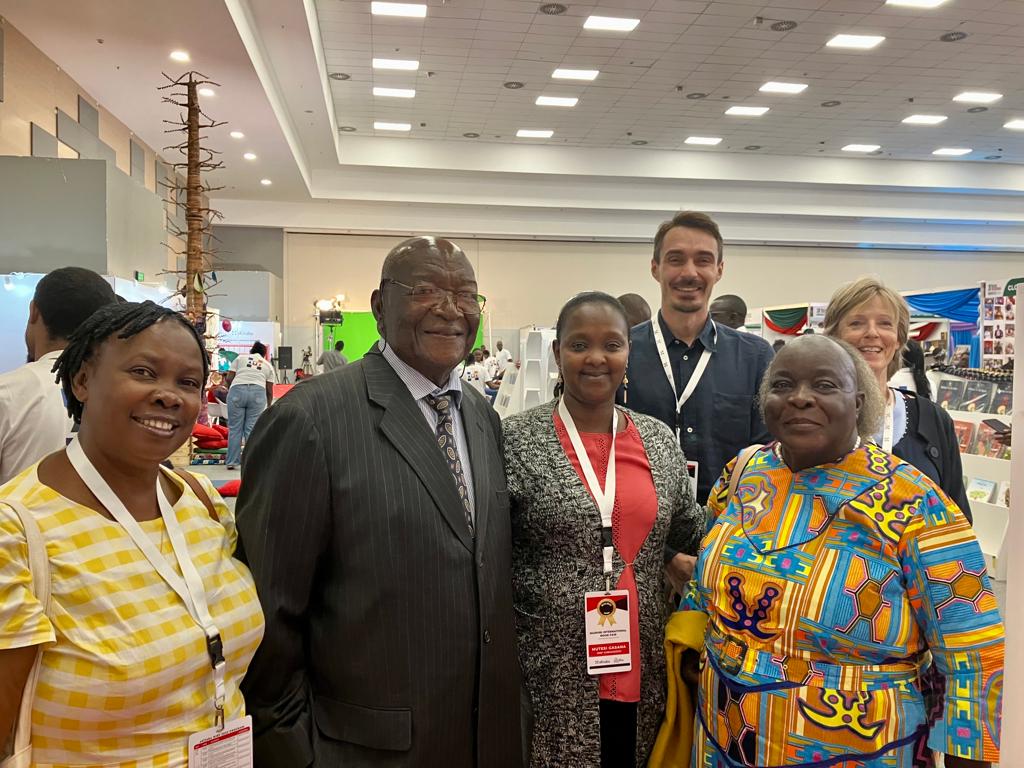Henry Chakava: in memoriam

I have a recollection of around 2002/3 of taking Henry Chakava’s daughter Yolanda Chakava, who was then starting as a graduate student in Oxford, to a bank to set up a UK account. It was nothing but a tiny gesture, a courtesy, part of our hospitality to a visitor from Kenya. Of course, I knew her father as the legendary publisher from Kenya, and a founder of African Books Collective (ABC). But to me this was instinctively part of the solidarity, friendship and working together on which the African publishing industry that came into its own through the efforts of Henry Chakava and others was built.
I later learned about the ways in which Henry had quite literally risked his life for his authors, most famously Ngũgĩ wa Thiong’o in defence of long-held values of literary and political freedom. Chakava was the Kenyan publisher of the iconic Decolonising the Mind: The Politics of Language in African Literature, that still underpins debates about writing and publishing in African languages. In a review of the festschrift published in 2016 as Coming of Age: Strides in African Publishing. Essays in Honour of Dr. Henry Chakava @70 I wrote that ‘Without Chakava, there would perhaps have been no Ngugi wa Thiong'o, at least not in the way in which he became an advocate and practitioner of literature in African languages and orality’.
Henry published hundreds of authors from Kenya and beyond, including Barbara Kimenye, Micere Mugo, Francis Nyamnjoh, Grace Ogot and Okot p’Bitek. He published Gikuyu translations of Ngugi’s books. He published series of textbooks in Swahili for schools. He published an important series of African language oral literature titles, a radical departure in its time, language learning materials for English and Swahili, and a comprehensive English-Swahili dictionary. He published key academic works, including Facing Mount Kenya: The Traditional Life of the Gikuyu by Jomo Kenyatta. He was a publisher extraordinaire in Kenya and east Africa.
For us in ABC, Henry was a founder, working with publishers in other African countries, notably Walter Bgoya in Tanzania, and Victor Nwankwo in Nigeria, to take control of their own distribution and participate in their own voices in international fora. Together they battled to establish ABC as a voice for African publishers and a non-profit business to further independent publishing and dissemination of books from the continent. The idiom then was of ‘national development’; ‘cultural development’; ‘indigenous publishing’; ‘publishing for the cultural liberation of the continent’. Times and words may have shifted, and publishing has gone digital, but these basic challenges to the African industry remain, especially in places where the success Henry achieved has not been comparable. Henry also played an important role in the founding and work of the African Publishers Network (APNET), including running a successful training programme.
Underpinning Henry’s achievements was the full indigenisation, or Africanisation, of the former British Heinemann Kenya to full Kenyan ownership and control. Thus leading the way for other publishers to follow in asserting independence. The ongoing dominance of Africa’s publishing markets by multinational publishers, be that of textbooks or academic journals publishing, is of pressing concern. The difficulty of addressing such concerns, including ensuring investments in African publishing, simply underlines Henry’s earlier achievement. The crucial nature of his intervention cannot be overemphasised, and the relative strengths of publishing in Kenya since independence cannot be separated from it.
Henry’s brave and innovative publishing was a source of inspiration to many; and his key role in African publishing initiatives, particularly the establishment of ABC, laid the foundations of independence for African publishers. He will remain honoured for that work and role and his legacy continues.
Stephanie Kitchen
Executive Director, African Books Collective
With thanks to Mary Jay for considerable input and support in writing this.

Photo of Henry Chakava which was taken during Nairobi Book Fair in September 2023. Credits Will Clurman.